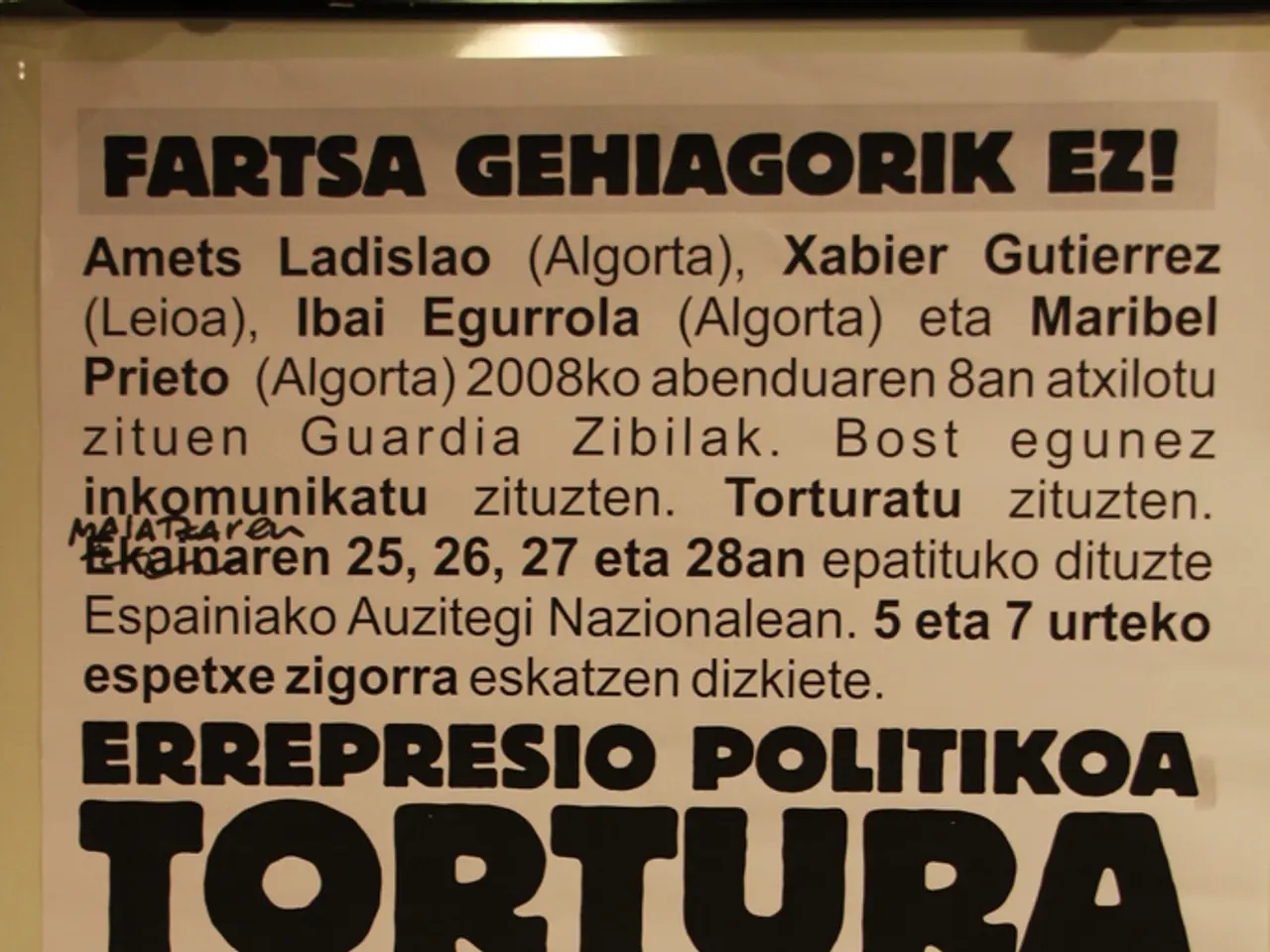Trump's heavy tariffs on Brazil could potentially lead to detrimental consequences
In a recent development, the United States government has imposed tariffs of 50% on Brazilian imports, effective from August 6, and has also sanctioned Brazilian Supreme Court Justice Alexandre de Moraes under the Magnitsky Act. These actions, according to the US government, are a response to perceived unfair trade practices and threats to national security.
Politically, the tariffs are justified as addressing a longstanding trade imbalance between the two nations. This imbalance, the US claims, has been detrimental to American economic interests. The tariffs are also backed by the International Emergency Economic Powers Act (IEEPA), which allows the US government to regulate international commerce in times of a national emergency or unusual and extraordinary threat.
Ideologically and politically, the US administration has been critical of Brazil's treatment of former President Jair Bolsonaro and his supporters. They view these actions as politically motivated persecution, harassment, and censorship, labelled as serious human rights abuses that undermine the rule of law in Brazil. The tariffs and sanctions against Justice de Moraes, who is presiding over Bolsonaro's trial, are a response to these actions.
The sanctions on Justice de Moraes are related to his role in prosecuting Bolsonaro. The US accuses him of orchestrating political repression and violating human rights, which Brazil perceives as unacceptable interference in its sovereign judicial affairs.
The US's actions have met with strong condemnation from Brazilian President Luiz Inacio Lula da Silva, who has accused the US of interference in the Brazilian legal system. Sociologist and political commentator Celso Rocha de Barros describes the US intervention as "unacceptable imperialist aggression".
Professor Guilherme Casaroes, from the Sao Paulo School of Business Administration, believes Brazil did well in negotiations with the US due to the numerous tariff exemptions. However, Demetrio Magnoli suggests that the US' attacks on de Moraes could find favor with parts of the Brazilian population, particularly those unhappy with the Supreme Court and its penalties on participants in the January 2023 rioting.
The tariffs and sanctions have sparked a heated political debate in Brazil, with de Moraes being celebrated as a defender of democracy by those on the left, while being seen as a nuisance by American right-wingers due to his investigations into Bolsonaro and his supporters.
As the situation unfolds, it is clear that the tariffs and sanctions are not just about trade imbalances, but are deeply intertwined with ideological opposition to Brazil's judicial persecution of Bolsonaro and the broader political conflict between Brazil's current government under Lula and Bolsonaro-aligned factions.
[1] https://www.whitehouse.gov/briefing-room/statements-releases/2024/07/29/statement-by-the-press-secretary-on-us-tariffs-on-brazilian-imports/ [2] https://www.state.gov/releases/2024/07/311916.htm [4] https://www.treasury.gov/resource-center/sanctions/OFAC-Enforcement/Pages/20240806.aspx
- The United States government's tariffs on Brazilian imports and sanctions against Brazilian Supreme Court Justice Alexandre de Moraes, effective from August 6, are responses to perceived unfair trade practices, threats to national security, and alleged human rights abuses in Brazil.
- Politically, the US tariffs are justified as addressing a longstanding trade imbalance, seen as detrimental to American economic interests, and are backed by the International Emergency Economic Powers Act (IEEPA).
- Ideologically and politically, the US administration has been critical of Brazil's treatment of former President Jair Bolsonaro and his supporters, viewing it as politically motivated persecution and censorship.
- The US sanctions on Justice de Moraes are related to his role in prosecuting Bolsonaro, with the US accusing him of orchestrating political repression and violating human rights.
- Brazilian President Luiz Inacio Lula da Silva has accused the US of interference in the Brazilian legal system, and sociologist and political commentator Celso Rocha de Barros describes the US intervention as "unacceptable imperialist aggression."
- The tariffs and sanctions have sparked a heated political debate in Brazil, with de Moraes being celebrated as a defender of democracy by those on the left, while being seen as a nuisance by American right-wingers due to his investigations into Bolsonaro and his supporters.
- The actions by the US government towards Brazil are not just about trade imbalances, but are deeply intertwined with ideological opposition to Brazil's judicial persecution of Bolsonaro and the broader political conflict between Brazil's current government under Lula and Bolsonaro-aligned factions.




